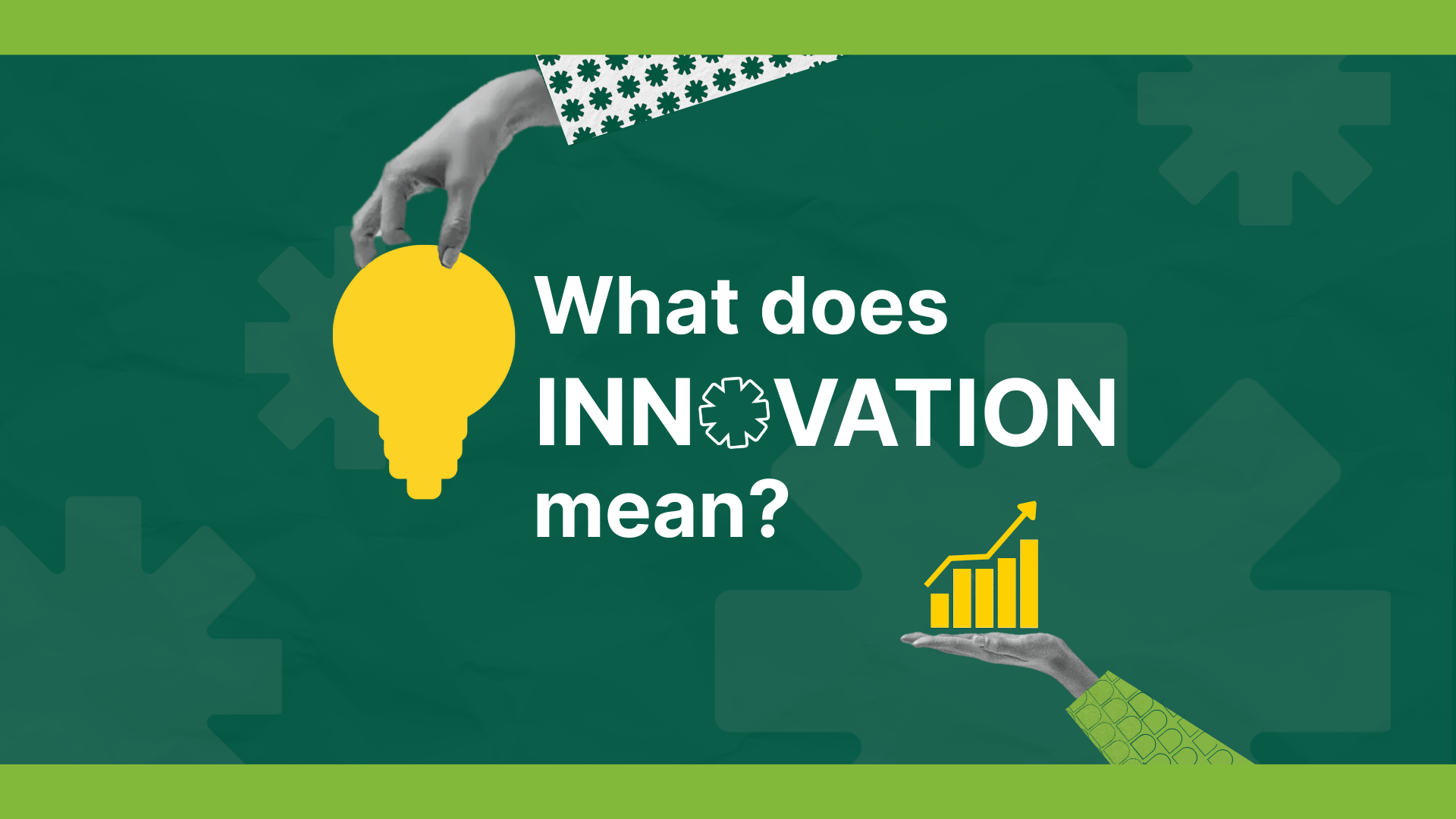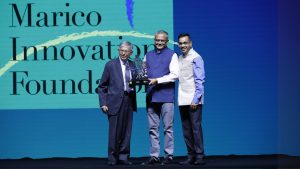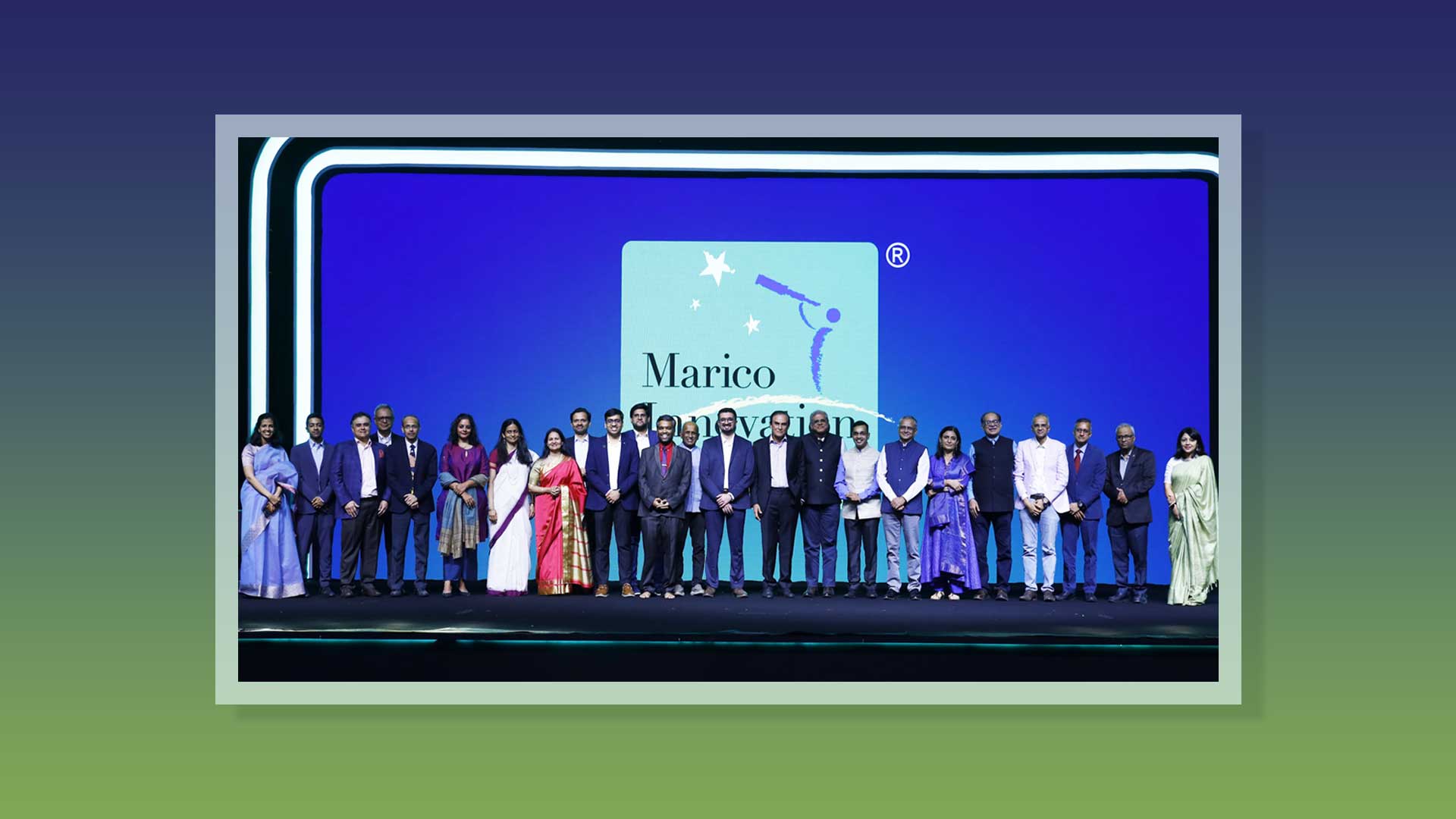Plastic Waste Management
Championing Sustainability: MIF’s Vision for a Plastic-free Future
How MIF is facilitating investments, market access, and circularity by supporting innovators in the plastic waste management space.
On World Creativity & Innovation Day 2025, we explore what truly defines transformative innovation through the eyes of India's most impactful innovators.

Innovation remains the primary engine of human progress. But there’s an important distinction between innovations that fundamentally reshape our world and those that simply offer novelty, or marginal improvements to existing solutions.
What makes innovation truly impactful? For two decades, Marico Innovation Foundation has worked with entrepreneurs, investors, and thought leaders across India who are tackling some of the country’s biggest challenges. Their perspectives reveal three core principles of innovations that create lasting impact.
The most powerful innovations create advantages that flow beyond the primary problem being solved, and ripple effects throughout entire systems. This compounding effect is particularly evident in the perspectives of those working in India’s innovation ecosystem.
Hemendra Mathur, Venture Partner at Bharat Innovation Fund and mentor at Scale-Up, MIF’s no-equity accelerator for startups solving India’s most urgent challenges, defines meaningful innovation as developments that “positively impact the lives of at least one million users or consumers, along with creating opportunities for more income/cost-saving/micro-entrepreneurship while solving critical challenges such as hunger, poverty, unemployment and climate change.”
In sectors like agriculture or healthcare, the most effective innovations address multiple challenges simultaneously. Rather than tackling only one aspect of a complex problem, they create solutions where improvements in one area naturally strengthen others.
S4S Technologies exemplifies this principle in practice. As one of two startups that graduated from MIF’s Scale-Up accelerator as a ‘Soonicorn’ (achieving INR 100 crore in annual revenue), S4S developed a food dehydration technology that simultaneously reduces post-harvest losses, creates rural employment (particularly for women), extends food shelf life, and improves farmer incomes. CEO Vaibhav Tidke describes their approach as creating “value for all four stakeholders: positive cash flows for the company, positive impact for people building the organisation, net positive impact on the environment, and upliftment of society at large.”

The strength of such innovations lies in how each element reinforces the others – better preservation technology means higher incomes, which increases adoption, which expands employment opportunities, creating a virtuous cycle.
Metrics drive behavior. The choice of what to measure and what not to measure fundamentally shapes innovation outcomes.
“A better way of doing things. A better life for all mankind. A better future. All at scale,” says Sandeep Singhal, Senior Advisor at Avaana Capital and member of MIF’s Governing Council. This focus on measurable improvement in well-being represents a significant shift from traditional innovation metrics that often focus exclusively on technological advancement or market growth.
Mr. Amit Chandra, Honorary Chairperson of MIF’s Governing Council and Chairperson & Founder of Bain Capital India, reinforces this principle by highlighting innovations that yield “far better results on key delivery parameters that matter and/or environmental considerations.” Having analysed investment opportunities across multiple sectors, Chandra recognises that predictive metrics of innovation success must include both financial and non-financial indicators.
The measurement principle extends to industry transformation as well. Dr. Surendra Agarwal, founder of Creative Group of Industries and Plastic Waste Management mentor at MIF’s Scale-Up accelerator, focuses on innovations that “fundamentally change the industry.” Such transformation can only be measured by looking at system-level indicators rather than product-specific metrics.
Perhaps the most powerful principle of transformative innovation is its ability to expand access and make valuable products, services, and opportunities available to people previously excluded.
Ashu Suyash, Founder & CEO of Colossa Ventures, jury member for Indian Innovation Icons 2025, and member of MIF’s Governing Council, articulates this precisely. Innovation, she suggests, “holistically solves unsolved problems and democratises access to value.” With experience leading organisations from CRISIL to Fidelity Fund Management India, Suyash has observed firsthand how democratising access creates exponential rather than linear impact.

This democratisation principle is particularly relevant in India, where innovations must work across diverse socioeconomic contexts. Solutions that maintain quality while becoming accessible to many more people create both larger markets and greater social impact. This balance is critical for innovations seeking to achieve meaningful scale in India’s diverse markets.
This also explains why certain business models gain particular traction in India. When Radhika Chaudhary, Director & CFO of Ricron Panels (a Scale-Up portfolio company), describes innovation as “something that creates new demand, and makes new markets with products that deliver a high impact,” she’s highlighting how democratising access can create entirely new categories of consumers and use cases.
Plastic waste management expert Sourav Daspatnaik of Swachh Environment adds another dimension to this principle, noting that transformative innovation often changes “people’s habits and the way we look at things.” When innovations successfully shift behaviors across diverse populations, they create new possibilities for addressing complex challenges that are resistant to conventional solutions.
These three principles – solving multiple problems simultaneously, measuring what matters, and democratising access – provide a practical framework for evaluating and supporting innovations with transformative potential.For two decades, Marico Innovation Foundation has applied these principles through:

The results demonstrate that innovations embodying these principles don’t just create products—they create possibilities.
As we mark World Creativity & Innovation Day 2025, these principles of innovation offer a roadmap which suggests that meaningful innovation isn’t ultimately about technology or methodology, but about expanding human potential and solving our most pressing challenges.
_____________________________________________________________________
Want more insights like these from India’s innovation leaders?
These perspectives were gathered through InnoWin, MIF’s newsletter, where we regularly feature thought-provoking insights from the country’s most visionary entrepreneurs, investors, and change-makers. Subscribe to receive exclusive innovation wisdom directly in your inbox.

How MIF is facilitating investments, market access, and circularity by supporting innovators in the plastic waste management space.

India’s startup landscape, rooted in India's historical socio-economic context, has now evolved tremendously into a global powerhouse of innovative enterprise.

Winners of the Indian Innovation Icons 2025 were announced at a dazzling grand finale on March 6, 2025, celebrating the spirit of Indian innovation.

Subscribe to InnoWin, our monthly newsletter, where we blend insight with inspiration & action with aspiration.
Join our mailing list